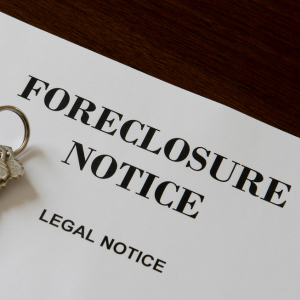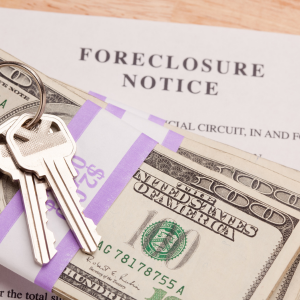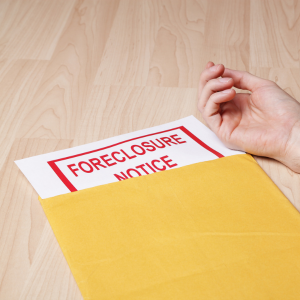
What Happens After a Foreclosure in Massachusetts?
Understanding the Foreclosure Timeline in Massachusetts

The Massachusetts foreclosure process can be challenging to deal with. It starts when you miss several mortgage payments. During the Massachusetts foreclosure timeline, there are essential steps you should know. First, the lender sends you a notice of default. Then, there’s a waiting period for legal matters. The lender might sell your home if you don’t pay what you owe. Understanding these foreclosure proceedings is essential if you are in this situation.
Rights of Homeowners Post-Foreclosure
After foreclosure, you still have rights. In Massachusetts, the eviction process after foreclosure begins with an eviction notice. You may wonder if you can stay at home. The law lets you wait a bit, but eventually, foreclosure eviction will happen if you don’t leave alone. Knowing your rights and seeking legal help can assist you during this challenging time.
Impact on Your Credit Score
A foreclosure affects your credit score a lot. In the short term, your credit rating can drop quickly. Long-term effects can make it hard to recover financially and get new loans. But you can rebuild your credit over time. You can improve your credit score by making smart money choices and talking to a credit counselor.
Understanding the Right of Redemption
The Right of Redemption is a key part of Massachusetts foreclosure laws. It allows homeowners to reclaim their property after foreclosure. This policy will enable you to pay what you owe and reclaim your home, even after the lender has sold it.

How Does the Redemption Period Work?
In Massachusetts, the redemption period is different for each case. You need to find the money to buy back your home during this time. Knowing your legal rights after foreclosure in Massachusetts helps you act fast.
Steps to Reacquire Your Property
If you want to get your property back in Massachusetts, follow these steps:
- Understand Financial Requirements:
- Find out how much money you need to redeem your property.
- Check any unpaid mortgage, fees, and interest.
- Negotiate with Banks and New Owners:
- Talk to your mortgage lender about possible payment plans.
- If the new owners purchased your home, contact them to discuss repurchasing it.
- Know the Foreclosure Process:
- Learn the steps in the Massachusetts foreclosure process.
- Be ready to act quickly during the redemption period.
Legal Assistance and Support Options
Handling foreclosure laws can be challenging, but you don’t have to do it alone. Here are options for getting legal help:
- Hire a Foreclosure Attorney: A foreclosure defense attorney in Massachusetts can guide you. They help with documents and represent you in talks.
- Seek Massachusetts Legal Aid: There are resources if you need help paying for legal advice. Massachusetts legal aid foreclosure programs provide support and guidance.
- Consult a Real Estate Lawyer: They specialize in foreclosure issues and can advise on legal matters related to your property.
Taking quick action and using the right help can improve your chances of getting your property back. Always ensure the advice or claims you get are from reliable sources or experts.
For more information on the foreclosure process, contact Naples Home Buyers. We’re here to help you understand your options and guide you every step of the way.
Exploring Alternatives to Prevent Foreclosure
Loan Modification Options Available in Massachusetts

If you’re worried about losing your home, you might consider a loan modification. In Massachusetts, there are specific rules to qualify for this. A loan modification changes the terms of your mortgage to make it easier to pay. To apply, you’ll need to show detailed financial papers.
Benefits:
- Pay less each month
- Have more time to pay off the loan
- Get lower interest rates
Potential Drawbacks:
- It might take a long time to get approved
- There could be fees involved
- It might affect your credit score
Talking to a professional can help determine if a loan modification works for you.
Government Assistance Programs
There are government programs that can help if you’re facing foreclosure. Both state and federal programs offer different kinds of support, like money, help, and advice. You’ll usually need proof of income and explain your money problems to apply.
Key Programs:
- Home Affordable Modification Program (HAMP)
- Massachusetts Housing Partnership (MHP) programs
These programs aim to help homeowners keep their homes while working through money issues. Applying soon can increase your chances of getting help.
Short Sale as a Viable Option
A short sale is another option if you can’t keep up with payments. With the bank’s approval, this process involves selling your home for less than the amount owed. Knowing how a short sale works is essential if you think this might be right for you.
Benefits:
- Stops foreclosure
- It hurts your credit score less than foreclosure
- It helps get rid of debt
Potential Risks:
- Might have tax issues
- The bank must agree
- It could take a long time
Think carefully about the benefits and risks before going for a short sale. Talking to real estate or financial experts can give you helpful advice.
By looking into these choices, you can find a way to stop foreclosure and plan for a stable financial future. If you need help, Naples Home Buyers is here to assist you with care and know-how.
Implications of Foreclosure on Massachusetts Residents
Effect on Future Home Buying Prospects

If you’re facing foreclosure in Massachusetts, it can affect your ability to buy a home in the future. The Massachusetts foreclosure process can change your mortgage eligibility. After a foreclosure, you usually have to wait before you can get another mortgage. This waiting time can vary, but you can improve your chances by working on your credit score. Pay any outstanding debts and ensure a good history of timely payments. Also, it’s helpful to know about the foreclosure redemption period in Massachusetts to plan your next steps.
Understanding Deficiency Judgments
Deficiency judgments are essential when dealing with foreclosure. These happen if selling your foreclosed home doesn’t cover the entire mortgage debt. In Massachusetts, lenders might try to get a deficiency judgment for the money owed. It’s essential to look at ways to reduce your liability. Talking to a Massachusetts real estate lawyer who knows foreclosure laws can help you understand legal implications. They can guide you on your rights and what you need to do.
Emotional and Psychological Impact
Foreclosure can be strict on your emotions. It’s not just about losing a house; it can also make you feel stressed or sad. Many people feel anxiety and depression during this time. Finding ways to cope is helpful. Support networks can give emotional support. There are community resources and Massachusetts foreclosure counseling services that can guide you. They help residents through these challenging times. Reaching out for help and connecting with others who understand can make a big difference.
Building Resilience Post-Foreclosure
Creating a New Financial Plan

A foreclosure is challenging, but you can achieve a better financial future. Start by making a simple budget to manage your spending and set small financial goals. Learning about financial management helps you understand how to track money coming in and going out.
Pay bills on time to improve your credit and reduce any debts. Joining financial education programs can give you the skills to make wise money choices. Saving is also essential. Even regularly saving a little bit can add up and help in emergencies.
Re-entering the Housing Market
When you’re ready to rebuy a home, learn about the housing market and mortgage terms. Different home-buying choices could fit your needs. Knowing how real estate works will help you feel more confident when buying a house.
To get financing, look at different loan options and pick one that matches your needs. Talking to a trusted real estate advisor can be helpful. They can help you understand mortgages and find the best option.
Community and Family Support Systems
Getting help from your community is useful when you get back on your feet. Look for local resources like financial counseling or housing programs. Participating in community activities connects you with others who have faced similar challenges and can support you.
Keep talking openly with your family. Share what’s going on and involve them in making plans. A strong support network gives you emotional backing and sound advice as you rebuild your life. With support, you’ll feel more confident handling difficulties and moving forward.
FAQs:
Can I regain ownership of my home after foreclosure in Massachusetts?

Yes, you might still be able to get your house back after the foreclosure sale. You can explore something called redemption, which lets you pay off what you owe before a set date to reclaim your home.
What rights do tenants have in Massachusetts during a foreclosure?
In Massachusetts, most tenants can continue living and renting even after a foreclosure. New owners must respect existing leases or give proper notice if they want tenants to leave.
Can I get my home back after foreclosure if I pay what I owe?
Yes, you may recover your home if you pay everything you owe, including any extra fees, within a specific time to redeem the property after foreclosure.
What happens when a property is foreclosed in Massachusetts?
In Massachusetts, the lender recovers what’s owed by selling the property in foreclosure. This process includes notices and might need court approval depending on the type of foreclosure.
How does the foreclosure process work in Massachusetts?

In Massachusetts, foreclosure usually starts with a notice of default. The lender could auction the property if you don’t stop it through actions like loan modification or mediation.
Can a former homeowner remain in their house after foreclosure in Massachusetts?
After foreclosure, a former homeowner might get a short time to move out. The outcome can depend on negotiations with the new owner and any legal steps involved.
Are there any legal actions I can take to stop foreclosure in Massachusetts?
Yes, you can sometimes delay or stop foreclosure by filing for bankruptcy or seeking mediation. The extension gives you more time to find a solution.
What assistance programs are available to prevent foreclosure in Massachusetts?
Massachusetts offers help, such as counseling services and loan modification programs, to keep homeowners from losing their homes. Talking to a local attorney or housing counselor can give you specific advice.
Key Insights
- You might be able to get your house back even after it has been foreclosed. Learn about foreclosure laws and options in Massachusetts.
- If you’re wondering, “Can I get my home back after my foreclosure in Massachusetts?” Yes, you might be able to do it through redemption or foreclosure mediation.
- Most tenants in Massachusetts can keep renting their apartments even if there’s a foreclosure. This means they can stay in their homes.
- You can redeem your property and possibly avoid a foreclosure eviction by paying the right amount and following specific legal steps.
- Foreclosure can affect you in many ways. Talking to an attorney can give you helpful advice on what to do.
- Understanding when and why foreclosures occur can help you make smart choices and consider all the foreclosure prevention options in Massachusetts.
- We encourage you to learn more about foreclosure mediation and how to redeem your property under Massachusetts laws.
- Contact us to learn how we can help you with the foreclosure process and possibly get back to your home.
These details apply to the entire state of Massachusetts, including cities like Springfield, Amherst, Greenfield, Huntington, and Hadley, as well as their surrounding areas. If you require extra assistance or have particular inquiries, please contact us at (413) 331-6060. Please see our website, Naples Home Buyers, for more information and complete descriptions of our services.


